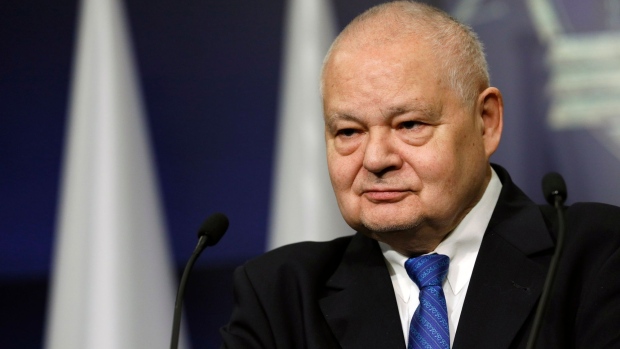Apr 7, 2022
Polish Rate Hikes Trigger Talk of State Support for Borrowers
, Bloomberg News

(Bloomberg) -- Polish authorities are discussing ways to ease the pain of rising costs of loan repayments for some borrowers after the central bank raised interest rates to the highest level in a decade.
Speaking at the news conference on Thursday, Governor Adam Glapinski said the government is working to increase the capacity of a fund, which was created in 2015, to aid the holders of once-popular Swiss franc mortgages.
Managed by the government’s development bank, BGK SA, the fund may now become the main tool to provide assistance to Poles who took out home loans in zloty when interest rates were close to zero in recent years.
The central bank lifted its reference rate by 440 basis points since October to 4.5% as inflation accelerated into double digits. Glapinski on Thursday gave no indication the tightening cycle is going to end up any time soon.
Most of Poland’s mortgage loans have variable interest rates that are tied to the three-month interbank benchmark, meaning the impact of hikes is felt almost instantly by borrowers. Glapinski said he doesn’t see any worsening of loan quality, adding that current rate levels aren’t high, historically speaking.
Opposition parties have pushed for a temporary freeze on mortgage rates, a move reminiscent of the measures adopted in Hungary late last year.
Private radio RMF reported earlier on Thursday that the government is considering aid for low-income borrowers, such as interest-free loans from the BGK fund, to help repay more expensive loans at commercial lenders. Other options include subsidies to cover interest costs, or a temporary cap on bank margins.
Deputy Premier and State Assets Minister Jacek Sasin told reporters that government is not currently working on additional support for borrowers. He added, however, that “the situation is dynamic” and that he expects “discussions on this matter to continue.”
©2022 Bloomberg L.P.





